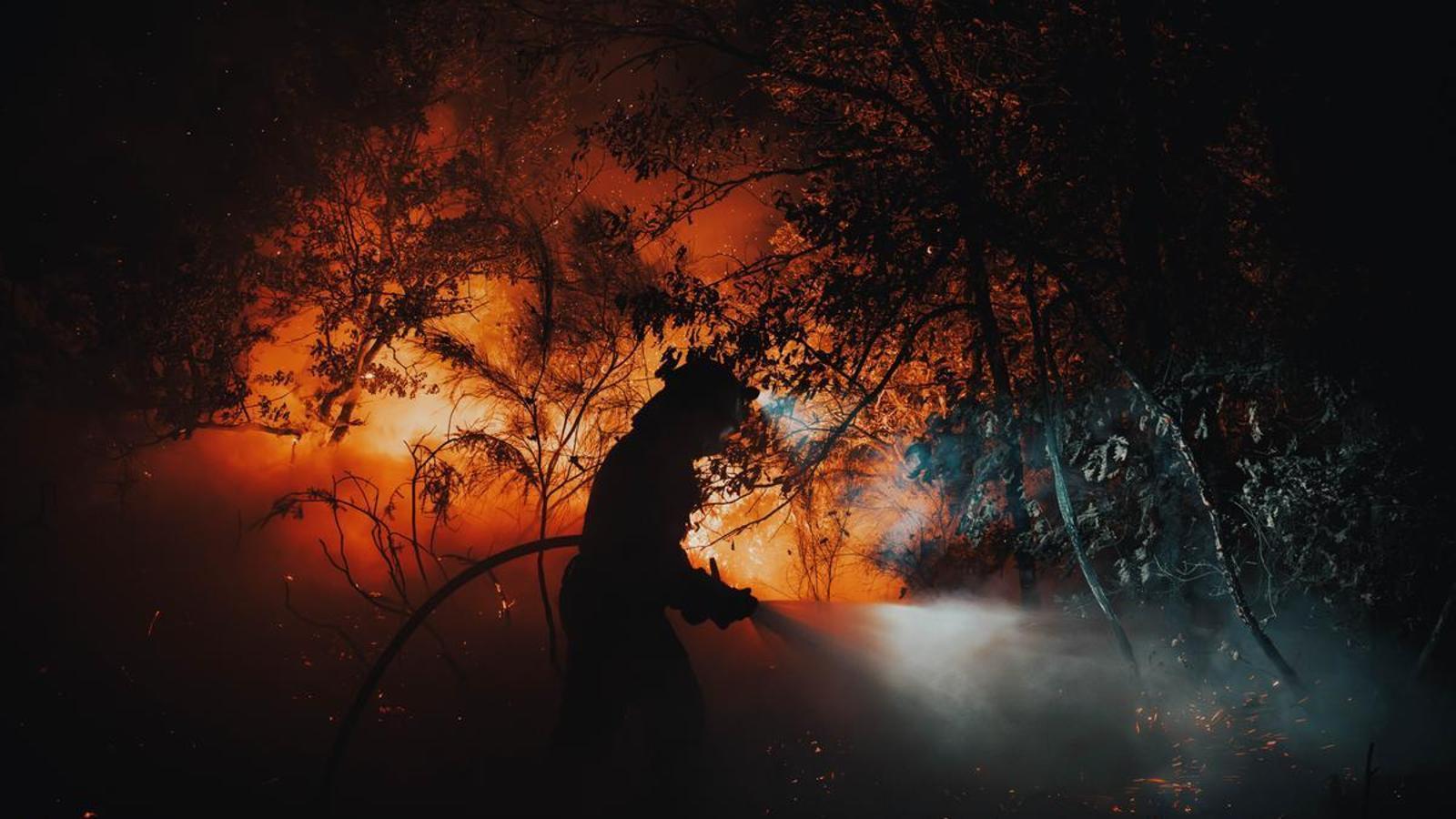The climate crisis has increased the likelihood of this summer's devastating wildfires by 40 times.
The extreme weather conditions experienced on the peninsula led to the uncontrollable spread of the flames.


BarcelonaThe climate crisis makes this summer's historic and devastating wildfires on the Iberian Peninsula 40 times more likely, with sustained extreme conditions of heat, drought, and wind. This is the conclusion of a recent study by scientists from the World Weather Attribution (WWA)The data indicate that the heat waves and drought experienced during the summer months intensified the rapid spread of fires in Spain and Portugal, with temperatures above 40°C for ten consecutive days, specifically between August 8 and 17, the hottest episode ever recorded in the state.
The study explains that with global warming—which is already 1.3°C above the pre-industrial era—the extreme conditions that aggravated this summer's wildfires are expected to occur every fifteen years. A frequency well above that of the pre-industrial era, when the probability was remote, about once every 500 years. The high temperatures resulting from the climate crisis have also favored a 30% increase in the intensity of the weather conditions conducive to fires.
"We are seeing fires that generate their own wind and behave unpredictably," warns Theodore Keeping, a researcher at Imperial College London, in the study. These are conditions typical of the dreaded sixth-generation wildfires, which advance uncontrollably, exceed the firefighters' extinguishing capacity and destroy everything in their path in a matter of minutes, as could be seen, for example, in the serious fire in Ponent at the beginning of July.
The WWA data also concludes that, if the climate crisis did not exist, the probability of a period like the historic ten days of extreme heat experienced this August would occur would be less than once every 2,500 years. Experts generally point out that the current climate context makes extreme heat waves of this type 200 times more likely and 3 °C warmer than normal.
It should be remembered that the fires caused Eight deaths and more than 640,000 hectares of land were destroyed between Spain and Portugal., two-thirds of the total area burned across Europe this year. These figures show that the peninsula has experienced one of its worst summers on record. In Portugal alone, fires are estimated to have burned 3% of the country's surface.
Reducing emissions and improving forest management
The WWA report points out that the main cause of the increase in extreme conditions that favor these large and devastating fires is the burning of fossil fuels. In fact, the study's experts call for reducing these emissions to slow the spread of the effects of the climate crisis. Without these measures, Europe as a whole could face new "catastrophic fires" in the coming years.
Furthermore, the data indicate that rural abandonment and lack of forest management generate a large amount of fuel in the forest, which facilitates the spread of flames in the event of a fire. "There is an urgent need to control vegetation in rural areas, particularly on lands that have been abandoned by farmers and shepherds; all levels of government must work together to adapt to climate change," warns Friederike Otto of Imperial College London.
The study also highlights the significant economic impact of the climate crisis, with recent events such as the major forest fires or the DANA (Dangerous Natural Disaster) in the Valencian Community. The report recalls that the price of "climate inaction" is growing throughout southern Europe.
